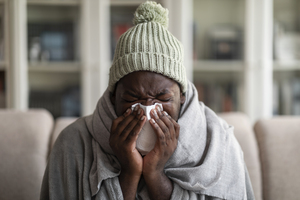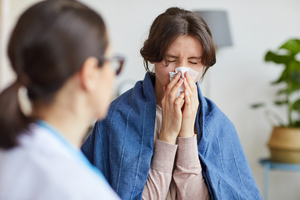Typhoid fever is a serious, potentially life-threatening illness caused by bacteria found in contaminated food or water. Although rare in the U.S., it’s common in parts of Asia, Africa, and Latin America. Fortunately, typhoid vaccines offer protection for travelers and others at risk.
What is typhoid fever?
Typhoid fever is a serious bacterial infection caused by the bacterium Salmonella enterica serotype Typhi (S. Typhi). It is primarily transmitted through contaminated food and water, often in areas with poor sanitation. Once ingested, the bacteria invade the intestinal walls and can enter the bloodstream, leading to systemic infection. Symptoms typically include prolonged fever, weakness, abdominal pain, headache, and loss of appetite. If left untreated, typhoid fever can result in severe complications and can be life-threatening.
Vaccination is an effective way to prevent typhoid fever, according to the CDC — especially for individuals traveling to regions where the disease is prevalent. Treatment usually involves antibiotics, although antibiotic resistance is becoming an increasing concern. Prompt medical attention is important for a full recovery, and maintaining good hygiene practices, such as proper handwashing and safe food preparation, can significantly reduce the risk of infection.







